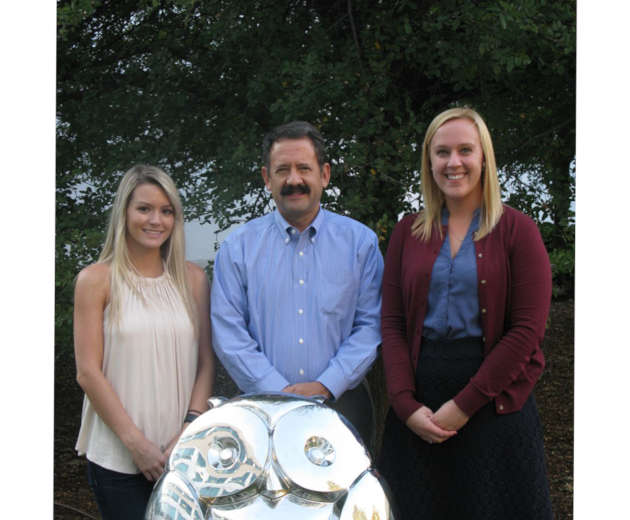
In an international competition that had collegiate students fighting for Internet advertising “clicks,” Naveen Jindal School of Management students placed second among the almost 700 teams in North America and 12th globally. The team’s Google AdWords campaign last spring had a “click-through rate” of 5.58 percent; the industry benchmark is 2 percent.
JSOM professor Alex Edsel, who oversaw the team, said this handpicked squad ran its $250 marketing campaign for the American Birding Association during April, a prime bird-migration time when avid birders would likely be doing Internet searches. Edsel, director of the Jindal School’s MS in Marketing program, said the team put together 21,375 keywords, a huge number, and in the end, the team’s $250 campaign encouraged viewers to click on the ad 406 times. The cost worked out to be about 62 cents per click, which would rank it as a good buy for most advertisers.
Amber Myatt, who graduated in May with a master’s degree in marketing, was a member of the Jindal School team along with Daniel Thai, a fellow MS in Marketing graduate, and Kelly Larrow Willbanks, a spring MBA alumna. Myatt said selecting the American Birding Association was strategic in two ways. Because it is national, the association “provides a larger audience reach,” she said. The team also wanted to work with a nonprofit so they could compete for the social impact award. (The JSOM team ranked as a finalist globally in social impact.)
Online Internet “surfing” has opened new ways to reach potential customers, and many use Google AdWords to do that. This Internet-based advertising started in 2000 and now is Google’s main source of revenue. Organizations as diverse as universities, hotels and pet food makers use AdWords to promote their services and products. It is an auction-based advertising method that savvy advertisers use to reach their target audience locally, nationally or globally.
“The most important take-away I had from the campaign was to continuously look at past data to improve results,” Myatt said. “It is also important to ensure that the landing page [of the client] is optimized to have the keywords being used” in the AdWords campaign.
Myatt, currently with Research Now, says her team decided its primary target audience would be retired bird enthusiasts “who would wake up early in the morning and research the birds they would be searching for that day. On the weekend, our campaign performed well in the morning, as we expected with that audience. However, during the week, our campaign did not show the same success in the morning, and it performed better in the afternoon and evening.”
“The U.S. is the most competitive [online advertising] market, often costing 40 percent to 60 percent more than other countries, so the team was in the most competitive arena and placed second after a very intense 21-day competition,” Edsel said. He is now on the lookout for top marketing students who have taken his digital marketing courses to form high-performing teams for the Spring 2017 Google Online Marketing Challenge.





